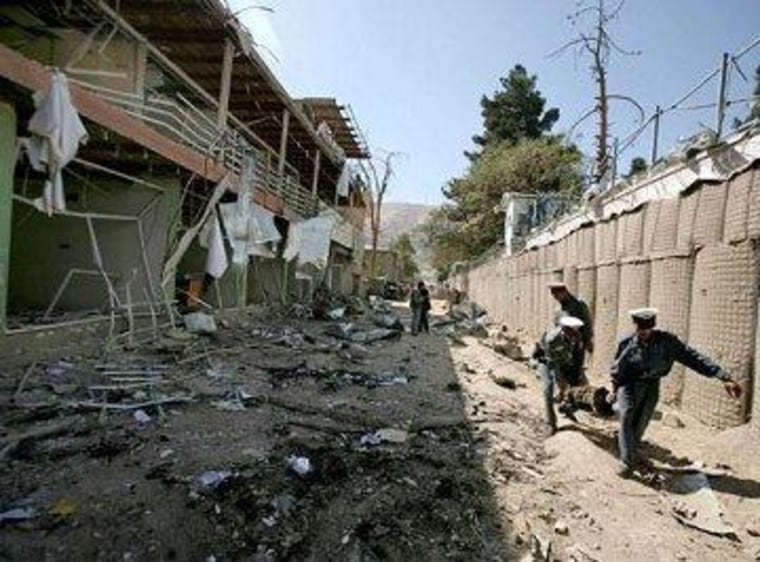In American history, when there's been a presidential campaign held in the midst of a war, there's been an unambiguous expectation: the candidates better be prepared to talk about that war.
In 2012, the standards are apparently different. In the midst of the longest war in American history, and with the election just 11 weeks away, discussion of U.S. policy in Afghanistan is practically non-existent. In Mitt Romney's case, we don't yet have a firm grasp of what his position on the war even is.
In a change of pace, a voter asked the Republican about the war yesterday.
"I can tell you this, when I become commander in chief if I'm so lucky, I will address the American people about these issues," which Obama has not done, Romney said. "With regards to Afghanistan, I will do everything in my power to transition from our military to their military as soon as possible, bring our men and women home and do so in a way consistent with our mission, which is to keep Afghanistan from being overrun by a new entity that would allow Afghanistan to be a launching point for terror again like it was on 9/11."
For one thing, whether one agrees with his policy or not, Obama has spoken at length to the public about the war. For another, Romney lacks the ability to discuss the issue in anything but soundbites -- he'll transition to Afghan control, but he won't say how, and he'll do so soon, but he won't say when. This isn't exactly encouraging.
Romney's running mate, who has about as much experience in foreign policy, national security, and the military as he does (which is to say, none), is on even shakier ground.
Paul Ryan told Fox News over the weekend that he has some experience in this area because, "I voted to send people to war."
That's true, he did. But here's a quick follow-up: did you vote the right way? And does this bolster or undermine your credibility on the subject?
Ryan has literally no background in international affairs at any level, and hasn't even served on relevant congressional committees. He compares his record favorably to Candidate Obama's, but the then-senator at least played constructive roles on the Homeland Security Committee, the Committee on Veterans' Affairs, and the Committee on Foreign Relations, where he did some excellent work on counter-proliferation.
But for Ryan, he voted to invade Iraq, he supported a disastrous policy, and he then voted to put the cost of the war on the national charge card, leaving future generations to pay for our national security decisions. This is foreign policy experience? Please.
I'm not even sure if this ticket has given the war much thought.
We talked recently about this remarkable anecdote the Wall Street Journal published.
Mr. Romney made that clear at a July fundraiser in Montana as he rehashed the challenges Mr. Reagan faced when he took office. He recounted how Mr. Baker, a former secretary of state, held a national security meeting about Latin America during the first 100 days of Mr. Reagan's presidency."And after the meeting, President Reagan called me in and said, 'I want no more national-security meetings over the next 100 days -- all of our time has to be focused on getting our economy going,' " Mr. Romney recalled Mr. Baker saying.
In reality, this exchange between Reagan and Baker never happened. I don't know who told Romney this or whether Romney simply made it up out of whole cloth, but Reagan dealt with plenty of national-security meetings early in his presidency -- as all presidents do.
Putting aside the merit of Romney's vague ideas about government, to reiterate what I wrote at the time, does he fully understand the nature of the position he's seeking?
Does he realize that a president, especially during a time of war, can't simply choose which areas of interest will be important to him, and leave national security behind altogether?
If Romney takes the oath of office in January, he'll have tens of thousands of American troops on the ground in Afghanistan, fighting a war that began so long ago, he was still a liberal Republican at the time. Does anyone have the foggiest idea what he intends to do with those troops and/or how long he intends to keep them there?
